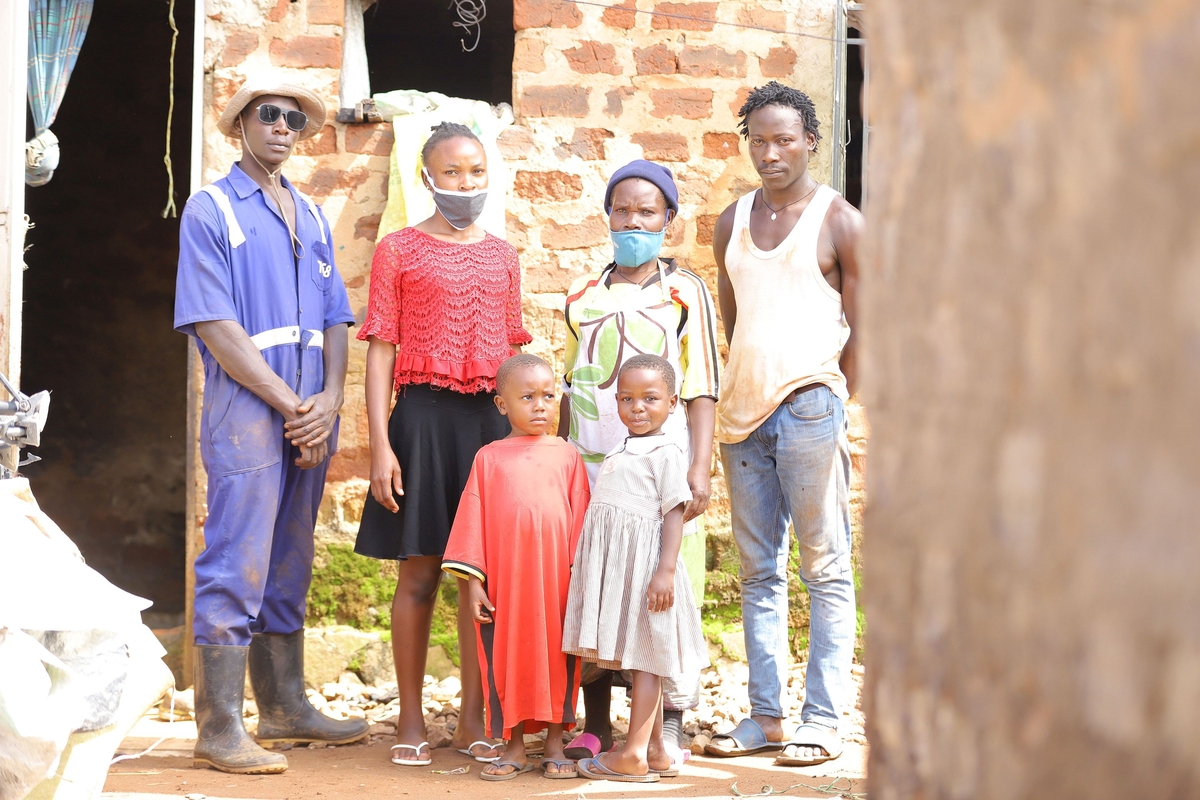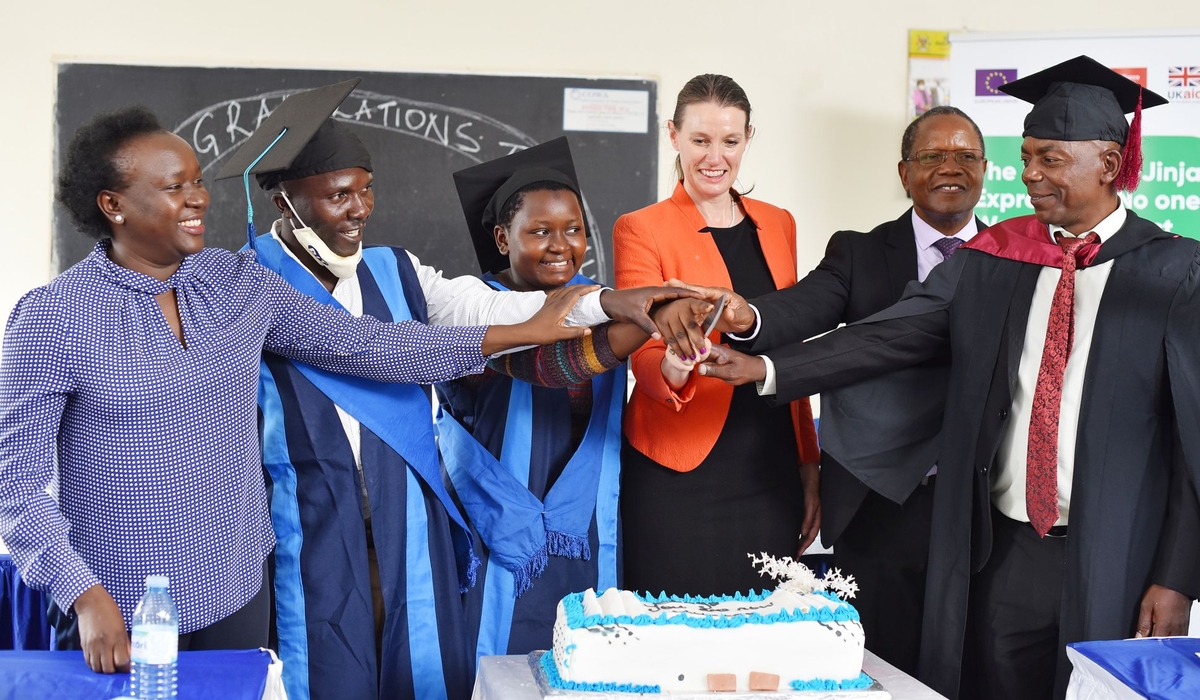Within the framework of the Kampala-Jinja Expressway (KJE) project, 30 youths from the areas affected by the imminent construction of the road, received graduation certificates from the Companionship of Works Association Vocation Training Centre on 25 November 2021.
The group was provided with a three-month training on building techniques at the Community Support Centre. This is part of the ongoing initiatives led by Cities Alliance and its partners to strengthen the capacities of local residents and facilitate the construction of affordable housing and slum upgrading in Kinawataka and Kasokoso. The two informal areas are in the right of way of the KJE, which requires the relocation of nearly 3,000 people.
“The training was beneficial, and it helped me, and my colleagues acquired helpful skills”, said Tom Tenywa, one of the graduates. He hopes to register a construction company with some of his fellow trainees and inspire other youths in their communities.
“I am now going to start earning from the skill I have acquired. I have already mobilized my fellow graduates to work together as a team to share different ideas and we have already come up with a company name, Youth Achievers”, said Tenywa.
The Community Support Centre was established to improve the livelihoods of the people affected by the construction of the expressway, under the KJE No One Worse Off project (KJE-NOWO). The initiative is led by Cities Alliance, with support from the European Union, the African Development Bank (ADB), the French Development Agency (AFD), and the UK Foreign Commonwealth and Development Office (FCDO).

The main purpose of the KJE-NOWO is to ensure that social and environmental safeguards are in place to protect the communities living on the right of way of the KJE. This includes providing support services to the affected households and small enterprises in targeted areas to help improve livelihoods, security of tenure, housing for longer-term markets, and neighbourhood incremental upgrading.
To achieve these objectives, the Uganda National Roads Authority (UNRA) conducted an Environment and Social Impact Assessment Study (ESIA) and designed a Resettlement and Livelihood Restoration Plan (RLRP) which recommended seven initiatives to ensure that the project meets the requirements set out by the International Finance Corporation performance standards and the ADB operational safeguards.
The centre was established in line with UNRA, Cities Alliance and SDI/ACTogether’s mandates to provide key technical and financial services for longer-term incremental improved housing. It aims at upgrading the 11 settlement forums through supporting the relocation needs of residents from the Kinawataka and Kasokoso areas, advocating for affordable housing development and marshalling resources from government, private and investment partners to enable capital development projects.
The Centre is also expected to facilitate research into infrastructure and housing development within the community and engage with various utility providers to ensure adequate service provision.

The youth training and the equipping of the centre have been funded by FCDO, supported by their implementing partner Cities and Infrastructure for Growth (CIG).
The group of graduates include 22 males and 8 females from 11 settlement forums. They are expected to support the building of affordable housing in the affected areas.
“You have a very important role to play, as we look at upgrading the areas of Kasokoso and Kinawataka. We count on you to achieve the long-term objectives of slum upgrading in your communities”, said Samuel Mabala, Cities Alliance Uganda Urban advisor, addressing the youths at the graduation event.
CIG’s team leader Helena McLeod encouraged the group to stay focused to achieve their goals and those of their communities.



